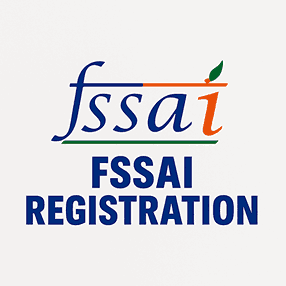
Whether you’re starting a home-based kitchen, launching a food startup, or running a restaurant, food safety should always come first. In India, the fssai registration process in India is a legal must for anyone involved in the food business. This guide is your go-to roadmap for understanding the process, why it matters, and how to perform the FSSAI registration check in India with ease.
Let’s make it simple for you.
What is FSSAI?
FSSAI stands for the Food Safety and Standards Authority of India. It is the regulatory body that ensures the food you produce, distribute, or sell is safe for human consumption.
The FSSAI issues a 14-digit license or registration number that needs to be printed on all food packaging. This number proves that your food business complies with the rules and safety standards set by the Indian government.
Who Needs FSSAI Registration?
If you’re involved in any kind of food-related activity in India—like manufacturing, processing, packaging, storing, transporting, or selling food—you need to register with the FSSAI. That includes:
-
Street food vendors
-
Home-based kitchens
-
Cloud kitchens
-
Food stalls
-
Restaurants
-
Food transporters
-
Food wholesalers
-
Retailers and online platforms
Big or small, every food business must undergo the FSSAI registration process in India to legally operate.
Types of FSSAI Licenses
The FSSAI offers three types of licenses based on the size and nature of the food business:
1. Basic Registration
-
For small businesses with a turnover below ₹12 lakh/year
-
Ideal for home kitchens, petty food vendors, and small shops
2. State License
-
For medium-sized businesses with a turnover between ₹12 lakh and ₹20 crore
-
Applies to restaurants, large retailers, and manufacturers
3. Central License
-
For large businesses with a turnover above ₹20 crore
-
Required for importers, exporters, and large-scale food operators
Step-by-Step FSSAI Registration Process in India
Here’s a simple breakdown of the FSSAI registration process in India:
Step 1: Determine the Type of License
Based on your business turnover and operation size, choose the correct type—Basic, State, or Central.
Step 2: Gather Required Documents
Some of the commonly required documents include:
-
Photo ID and passport-sized photo of the applicant
-
Business name and address proof
-
Nature of the business
-
Food safety management plan
-
Rental agreement or ownership proof
Additional documents may be required depending on the type of license.
Step 3: Apply Online
Visit the official FSSAI FoSCoS portal. Create an account and select “Apply for Registration” or “License.”
Fill in the form carefully, upload the documents, and pay the applicable fee.
Step 4: Verification and Inspection
The FSSAI authority may inspect your premises if needed. This is generally the case for State and Central licenses.
Step 5: Receive Your FSSAI License
Once your application is approved, you will receive a 14-digit registration/license number. You must display this number on all food packages and premises.
FSSAI Registration Check in India: How to Do It
After completing the process, it’s important to ensure your registration is active and valid. Here’s how to perform the FSSAI registration check in India:
Step 1: Visit the Official Website
Go to https://foscos.fssai.gov.in
Step 2: Click on ‘FBO Search’
This option lets you search any Food Business Operator (FBO) by name, registration number, or location.
Step 3: Enter Your 14-digit FSSAI Number
Input your license or registration number to verify the status. You’ll see details like license validity, type, and business address.
This quick FSSAI registration check in India is useful for confirming the authenticity of your license—and it’s a great way to show your customers that your business is legitimate and safe.
Why Is FSSAI Registration Important?
Here are some clear benefits of completing the FSSAI registration process in India:
-
✅ Builds Trust: Customers feel safer buying food from registered businesses
-
✅ Legal Protection: Avoid hefty fines or business shutdowns
-
✅ Business Expansion: Required for working with aggregators like Zomato, Swiggy, Big Basket
-
✅ Improves Branding: Boosts your brand credibility with a government-approved license
-
✅ Export Benefits: Needed for international food trade
How Long is the FSSAI License Valid?
FSSAI licenses are generally valid for 1 to 5 years. It’s important to renew the license at least 30 days before expiry to avoid penalties.
You can also use the online platform to renew your license and track its status through the same fssai registration check in India process.
Tips for a Smooth FSSAI Registration
Here are a few helpful tips to ensure your process goes smoothly:
-
Double-check all the documents before uploading
-
Use the correct business name that matches other legal documents
-
Hire a consultant if you’re unsure of the type of license needed
-
Keep your license number printed on every food package
-
Regularly check your license status online
Conclusion
Getting your FSSAI license might seem complex at first, but once you understand the fssai registration process in India, it becomes much simpler. It not only makes your business compliant with the law but also earns the trust of your customers.
After completing the process, don’t forget to use the fssai registration check in India to stay compliant and updated.
If you need assistance in registering your food business or navigating the process smoothly, Startup Club India is here to help with expert support and reliable services.